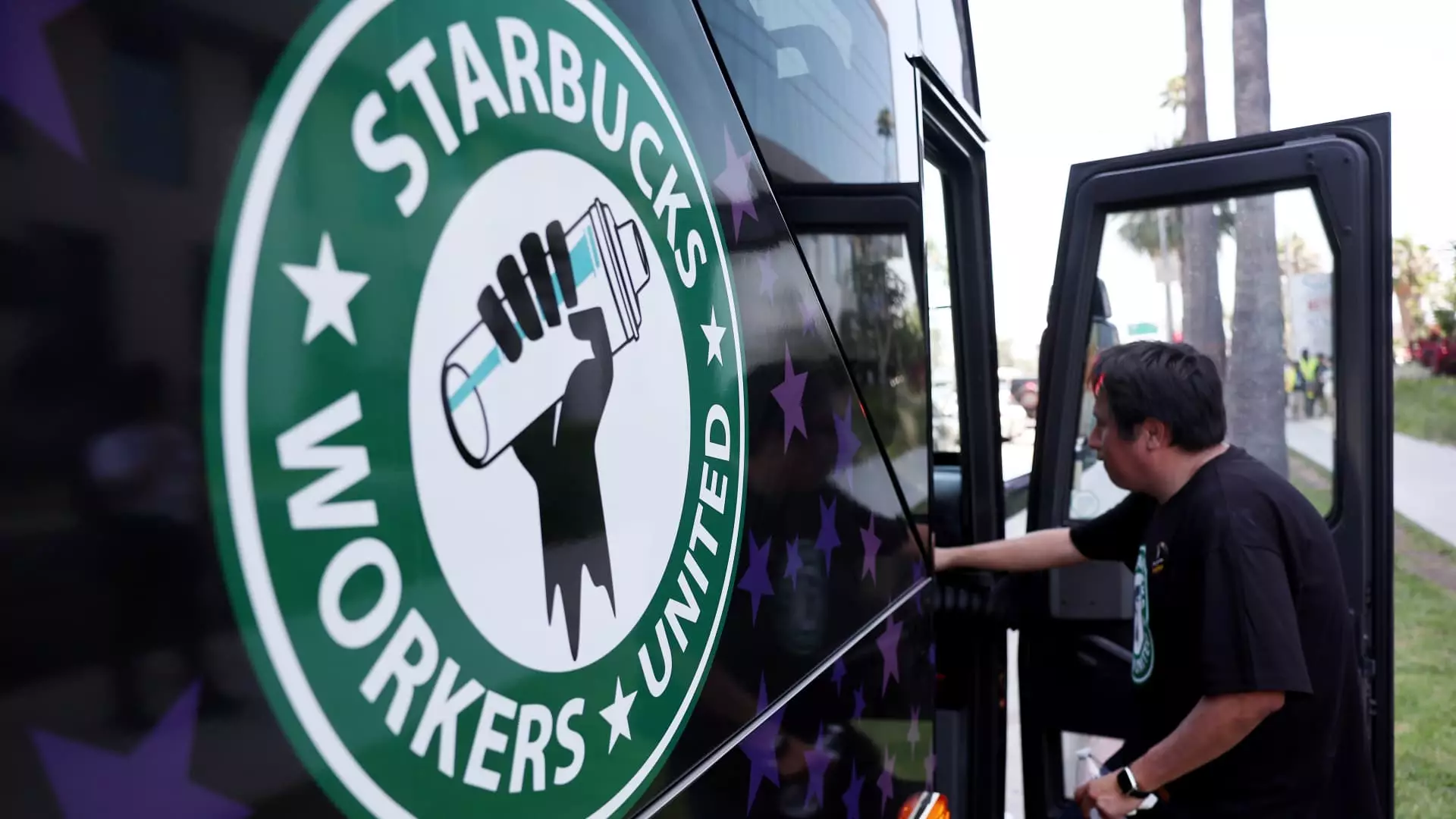In a significant move signaling discontent, Starbucks Workers United announced on Tuesday that an overwhelming 98% of its union baristas have voted in favor of striking. This decision comes amid ongoing negotiations for a contract with the coffee titan, indicating that labor relations at the company are reaching a boiling point once again. As bargaining delegates prepare for what is considered the final negotiation session of the year, the expectation for a concrete agreement hangs heavy in the air.
The past year has seen Starbucks and Workers United engage in extensive negotiations, reportedly spending hundreds of hours at the bargaining table. While both sides have succeeded in drafting several tentative agreements on key issues, unions still face a significant backlog of unfair labor practice cases that remain unresolved. The core of the union’s grievance lies in Starbucks’ failure to deliver a comprehensive proposal that adequately addresses the economic needs of its workers. Issues like adequate pay and benefits have become central to the union’s demands, and the absence of a solid offer has intensified the calls for a strike.
Conversely, Starbucks has challenged the union’s portrayal of the negotiations, suggesting that progress has been made. The company has highlighted its ongoing commitment to fostering a constructive dialogue, asserting that it has engaged in numerous bargaining sessions that resulted in impactful agreements on various matters important to the union. This contention illustrates the fundamental discord between both parties regarding the progress and substance of the ongoing discussions.
The strike authorization vote reflects a deteriorating relationship after a brief period of promise, where mediation efforts had seemed to pave a path toward constructive engagement. This comes on the heels of Starbucks’ contentious fight against the unionization movement, which has seen more than 500 company-owned cafes successfully vote to unionize since 2020. Former CEO Howard Schultz faced intense scrutiny, and the union’s successes have galvanized further support for labor rights among consumers and lawmakers alike.
Starbucks has also introduced initiatives like doubling paid parental leave, led by its new CEO Brian Niccol, who has vowed to negotiate in good faith since his appointment. However, baristas are reportedly poised to receive smaller annual pay increases next year, compounding their frustrations and highlighting the challenges facing the workforce in the wake of a national sales slump.
As negotiations unfold, the potential implications of a strike are significant not just for Starbucks but for the broader labor movement within the service industry. If workers take to the picket lines, it may signify a watershed moment that could inspire similar actions in other sectors, challenging the status quo of labor relations and pushing for more equitable treatment across the board. With high stakes on both sides, the coming weeks will be pivotal in determining not only the future of Starbucks’ workforce but also the evolving landscape of labor rights in America.
With these tensions brewing, observers will be watching closely to see whether Starbucks can quell dissent and maintain its reputation or if baristas decide to stand firm in their demands for fair treatment, highlighting the increasing importance of worker solidarity in an evolving economic landscape.

